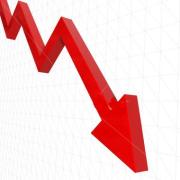
James Surowiecki fiddled about the idea that our tax breaks on debt interests are encouraging debt, the ones that eventually pulled down the system with it. He makes a lot of sense, especially when he mentioned:
Debt didn’t get dangerously out of scale because the system was broken. It got out of scale, in part, because the system worked.
Of course, he was speaking largely of corporate debts as well as mortgages but he did also raised the point that “In the U.S., people used to be able to write off the interest they paid on credit cards. That tax break was abolished in 1986…” Interestingly, Fortune Magazine ran a story about record debt in China. The diagnosis sounds grim but it does little to compare the context of the debts in China and US, making it difficult to assess if the ‘some economists’ quoted by them makes sense. Moreover, the statement about infrastructural investments is way too wobbly, China has much room to pull ahead when you compare them with the developed world; to be frank, the top cities in China barely compare with top cities of the world. In addition, The Economist have also tried to offer an alternative, more comprehensive explanation of China’s growth linked to productivity.
Some economists believe China’s infrastructure, already superior to that of many other developing economies, has now passed the point where more investment can contribute much to growth. China, in other words — despite the rosy, headline GDP numbers — might be stuck.
And yes, Japan is now fearful of the D-word, or rather the comeback of it; not depression, or debts. It’s kind of cool to have a central bank that combats ‘deflation’ rather than ‘inflation’ though.

1 Comment